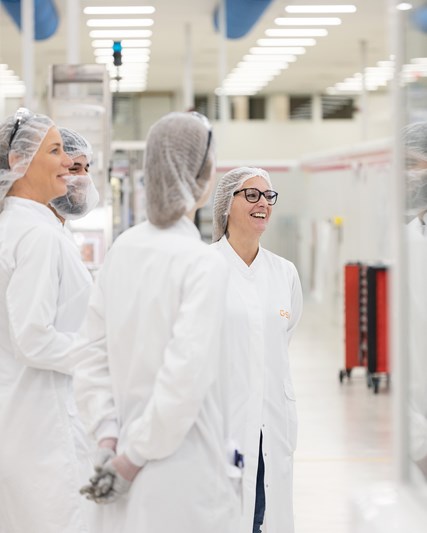Adult immunisation is key to building sustainable health systems, workforces and societies. So what will it take to make it a standard of care, similar to pediatric immunisation and cancer screenings? Here, Michael Hodin, CEO of the Global Coalition on Aging and a GSK partner, makes the case for it.
It was once unimaginable that people would live into their 70s, 80s and beyond.
But now, scientific and medical innovation has extended the average lifespan, with more than 1 billion people over 60, many of whom are currently working, volunteering, travelling and staying active for decades past traditional retirement age. This activity fuels the $15 trillion “silver economy” – the economic contribution of older adults who are engaging in the workforce and market.
For governments, policymakers, employers and other decision-makers, the challenge is helping people to extend their “healthspan” – or the number of years lived in good health – to match their lifespan. Doing so ensures older adults remain vital contributors to society, while mitigating the high costs of age-related health conditions and the resulting strain on healthcare systems and public finances.
Adult immunisation is one of the most important and cost-effective tools available to help achieve this, and it’s about time we took full advantage of it.
The missing 100 million
Much like good diet and exercise can help improve overall health as we age, improving adult vaccination rates could help address the immense burden of vaccine-preventable diseases, like influenza, RSV, shingles and pneumococcal pneumonia, which can be severe for older adults, as people’s immune systems weaken with age. Plus, vaccine-preventable diseases impose significant medical and economic costs – the United States alone spends as much as $9 billion each year on direct medical costs related to treatment and to cover resulting productivity losses resulting from vaccine preventable disease and its complications.
Perhaps understandably, adult immunisation rates for these sorts of diseases were derailed by the COVID-19 pandemic and still remain relatively low. A recent report, shared by GSK in collaboration with the IQVIA Institute for Human Data Science and the Global Coalition on Aging (GCOA), found that adults missed 100 million potential vaccine doses in 2021 and 2022 alone, reversing years of steady progress.
As a result, millions of older adults face greater risk from preventable infectious diseases and related complications, which can lead to increased hospitalisations and further medical issues. On top of this, our healthcare systems face the burden of severe respiratory disease seasons every year, which can strain providers and exacerbate burnout.
But it doesn’t have to be this way.
We were able to rapidly build out the necessary infrastructure to support COVID-19 vaccinations during the pandemic. Now the question is: can we build out similar but more sustainable infrastructure, including easy-to-access points of vaccination and straightforward health insurance reimbursements on costs for patients, for other vaccine-preventable diseases? The development of innovative vaccines is essential, but this must be paired with powerful support structures to turn vaccine innovations into vaccinations.
The new normal
Our goal must be to make adult vaccination the new standard of care. After all, this isn’t just a “pandemic problem” – we see seasonal viruses evolve each year, new variants of COVID-19 will continue to emerge and our global population will continue to age.
So how do we make it happen?
First, we need more research and data to understand the factors limiting vaccine access. These barriers vary greatly depending on socioeconomic, geographic and other factors. Limited data currently makes it difficult to identify gaps, evaluate programs and make improvements. Ongoing analysis and stronger vaccine data infrastructure will enable healthcare leaders to make data-driven decisions, track progress and adjust responses as needed.
Then we need to engage communities globally to increase education and build belief in prevention. This was a major focus point for COVID-19 vaccine awareness campaigns, and we need to keep the momentum going for other diseases.
We also need to unlock funding to enact policies that increase vaccine access and uptake. Governments can build on and sustain what was learned during the pandemic, which was the first time many countries had rolled out national adult vaccination platforms and engaged pharmacists as vaccinators.
Finally, we need to continue building our arsenal of vaccines as part of ongoing, transformative innovation for healthy ageing. That’s why GSK has built one of the broadest vaccine portfolios in the world to help protect people at all stages of life, including older adults.
The full, tremendous potential of adult immunisation is well within our reach. And the way to get there is for us all – governments, health systems, policymakers, employers and innovators – to take collective action and embrace it as the new standard of care.
Michael has contributed to this article in partnership and with support from GSK.







